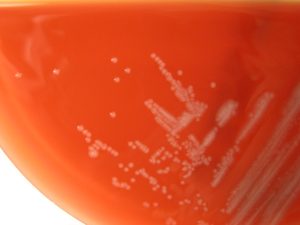9

Since Delftia is a microbe under constant study with researchers making new discoveries about its characteristics regularly, there was a need for synthesizing all the information available about Delftia in one place. This is where The Delftia Project came in. Throughout the Fall semester of 2020, undergraduate researchers at North Carolina State University, under the mentorship of Dr. Carlos Goller, created and published Wikipedia pages about different Delftiamicrobes through the WikiEdu service. WikiEdu provides a way through which teachers and students and curious people can share their knowledge and research with the general public on the internet. The students annotated scholarly articles, synthesized information, and collaborated on writing professional Wikipedia articles that are organized and well-researched. They also peer-reviewed each other’s articles to make sure the data were accurate and appropriately cited. The students met virtually and held regular meetings to stay on track and updated each other.
Their writing focused on the history and industrial applications of Delftia, especially with Delftia Acidovorans. They researched and wrote about the roles of D. acidovorans in biomineralization and biomanufacturing. Specifically, how D. acidovorans can metabolize gold from sea samples and electronic waste. The students also explored the possibilities of D. acidovorans being utilized in electronics recycling, due to its biomineralization properties. Since there are some strains of Delftia that are not well researched, the group of undergraduate researchers found it important to create a separate Wikipedia page for them, detailing their history and current applications. One of these pages is dedicated to Delftia lacustris. Strain types and taxon identifiers are also embedded in the Wiki pages from metadatabases. These serve to organize the basic data about each strain, such as their morphologies and growth conditions.
Please check out the D. acidovorans page here, and the D. lacustris page here. Feel free to read and explore all the links. Have fun learning about the diversity of Delftia!

